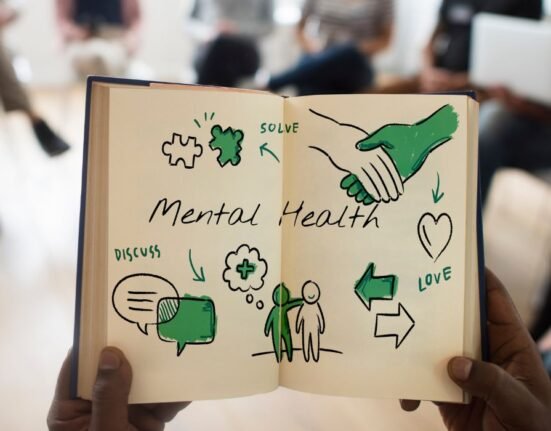Social media refers to any platform, website, or application that allows us to share and interact. Today, It is much more than a platform for communication, it supports business, entertainment, networking, education, and whatnot. This has made our lives easier and better. Facebook, YouTube, WhatsApp, Instagram, TikTok, and Telegram are some of the top-used applications globally. The average time a person spends on social media is said to be 2 hours and 24 minutes per day and TikTok stands first among all the other apps where people spend almost 31 hours and 32 minutes per month.
Speaking over the link of social media use with productivity and stress in life, According to Clinical Psychologist and Mental Health Expert, Diksha Rawat, “Managing stress involves completing tasks on time or meeting deadlines. However, one common distraction that can hinder productivity is excessive social media use. While spending time online can offer a break, spending too much time on it can increase stress levels and reduce efficiency. It’s essential to limit our time on such platforms and find other ways, like pursuing hobbies, to relax and unwind. By reducing our social media consumption, we can better manage our time, improve focus, and alleviate stress.”
Related: How does social media materialism bring both stress and unhappiness?
Social media is a double-edged sword. It has improved our living and with this, it is a major addiction among so many people belonging to various age groups. If you are spending too much time on it and if this is disturbing your daily life, this behavior can be called addiction. Based on the components model of behavioral addiction, social media addiction is conceptualized as a set of symptoms about six types of problematic behavior:
- Salience, when social media takes over a major part of your thoughts and daily life.
- Tolerance, when you will have to spend more time to gain the same pleasure.
- Mood modification, when you use it as a way to overcome pain and mental disturbance.
- Relapse, which refers to the inability to curb excessive use after attempts of abstinence and management.
- Withdrawal, which refers to psychological disturbance felt when one cannot get access to it.
- Conflict, which refers to the adverse impact on one’s job or education because of excessive social media use.
Why do people use social media so much?
To raise dopamine levels
Social media can keep you high by producing dopamine in the brain. This activates your reward system, and you start the habit of constantly approaching it for pleasure. Interesting posts, receiving likes and comments can give more boost of hormones and later you will get addicted to it.
Related: Kho Gaye Ham Kahan: A Dark Story of Social Media World
To escape the real world
Introverts are people who enjoy being with themselves and they avoid real-life interaction. These people might use social media as a way to stay away from people. Sometimes life will be treating you badly and then you start using online sharing platforms as a way to stay out of the emotional pain and distress.
To stay connected
Life takes you to different places, you will not be able to stay with your loved ones all the time. You may not be able to call everyone every day so social media becomes the medium between you and your loved ones to keep each other informed. Sending memes and reels is the new love language. Suddenly in the middle of work, you miss your friend but, you can’t tell this due to workload. Later in the night, you see a video about friendship, and with just one click your love travels miles to meet your friend and tells them how much they mean to you. This is a boon but if you constantly depend on social media, you will miss a lot of things around you, and you might even forget to make new friends.
Related: Memes as Tools for Mental Well-being
To escape Isolation
Imagine that you are in a new city to begin a new life, You don’t have any friends in the place and you start to feel lonely. Phone and social media turn into your best friends just to escape isolation and slowly you get addicted to these too. The need for affiliation is basic and the inability to achieve it can give you a hard time. “I remember my initial days in Bangalore, as an adult I found it difficult to make friends even though I was an extrovert but then I wanted people badly. I developed this unusual habit of holding the phone every time, while walking, while traveling when in the room, I always wanted my phone to be there with me”. Such a situation can lead to addiction.
To be like others
When all your friends are on social media and are constantly talking about it you will slowly follow the same track. This influence will be greater during adolescence as children going through this phase will have a strong need for acceptance and belongingness. Being on social media and sharing your life feels cool and this becomes a habit.
But Can we protect ourselves from Social Media Harms without actually quitting it? According to Forensic Psychologist and Therapist, Sandhya Dahiya, “Cyberbullying on social media platforms is having a major negative impact on the mental health of its users. Also, the lavish side of social media content influences it’s viewers to be dissatisfied with their own life and they start overthinking and imagining stuff. They feel appealed by the idea and start having expectations from their peers, partner, parents, thus, impacting their personal lives.”
Speaking further, Sandhya Dahiya Explains, “Awareness regarding the positive and negative impacts, seeking the “why” over a particular idea, can help us stay more alert. In simple words, instead of believing to any idea circulated over the internet without having evidence to back, should be looked at critically. for example, a teenage may start expecting his/her parents to send him/her abroad for study, after seeing online videos of students enjoying their studies abroad, without considering the huge financial barriers and the income of the parents.”
Tips to Reduce Social Media Usage
- Arrange the applications in a way to reduce exposure to them.
- Try to switch off the notification so that this sound doesn’t distract you.
- Find activities that you can do without a gadget. Bring back your old hobbies and have a good time with them.
- Try to take breaks between your screen time.
- Track the time that you spend on media.
- Build a routine and fixed time for media.
- Avoid too many social media platforms instead only spend your time on useful apps.
- Stop using your phone as an alarm.
- If you are not able to bring control over your usage then uninstall those apps temporarily.
- Some apps can help you track and reduce your time online.
In conclusion, while social media offers many benefits, it also carries risks of addiction and negative mental health impacts. Recognizing signs of addiction and implementing strategies like limiting screen time, organizing apps, and engaging in offline activities can help maintain a healthy balance. It’s essential to be mindful of our digital habits to enjoy the benefits of social media without compromising our well-being.
Reference +
- 6 ways to avoid social media distraction while learning online. (n.d.). Victoria University, Australia. https://www.vu.edu.au/about-vu/news-events/study-space/6-ways-to-avoid-social-media-distraction-while-learning-online
- Corporativa, I. (n.d.). Addiction to social media: main causes and symptoms. Iberdrola. https://www.iberdrola.com/social-commitment/impact-social-media-youth#:~:text=Causes%20and%20profile%20of%20people%20addicted%20to%20social%20media&text=Adolescents%20are%20at%20the%20highest,to%20reaffirm%20their%20group%20identity
- Cherney, K. (2020, August 6). What is social media addiction? Healthline. https://www.healthline.com/health/social-media-addiction
- Cheng C, Ebrahimi OV, Luk JW. Heterogeneity of Prevalence of Social Media Addiction Across Multiple Classification Schemes: Latent Profile Analysis. J Med Internet Res. 2022 Jan 10;24(1):e27000. doi: 10.2196/27000. PMID: 35006084; PMCID: PMC8787656.
- Chegeni M, Shahrbabaki PM, Shahrbabaki ME, Nakhaee N, Haghdoost A. Why people are becoming addicted to social media: A qualitative study. J Educ Health Promot. 2021 May 31;10(1):175. doi: 10.4103/jehp.jehp_1109_20. PMID: 34250109; PMCID: PMC8249956.













Leave feedback about this